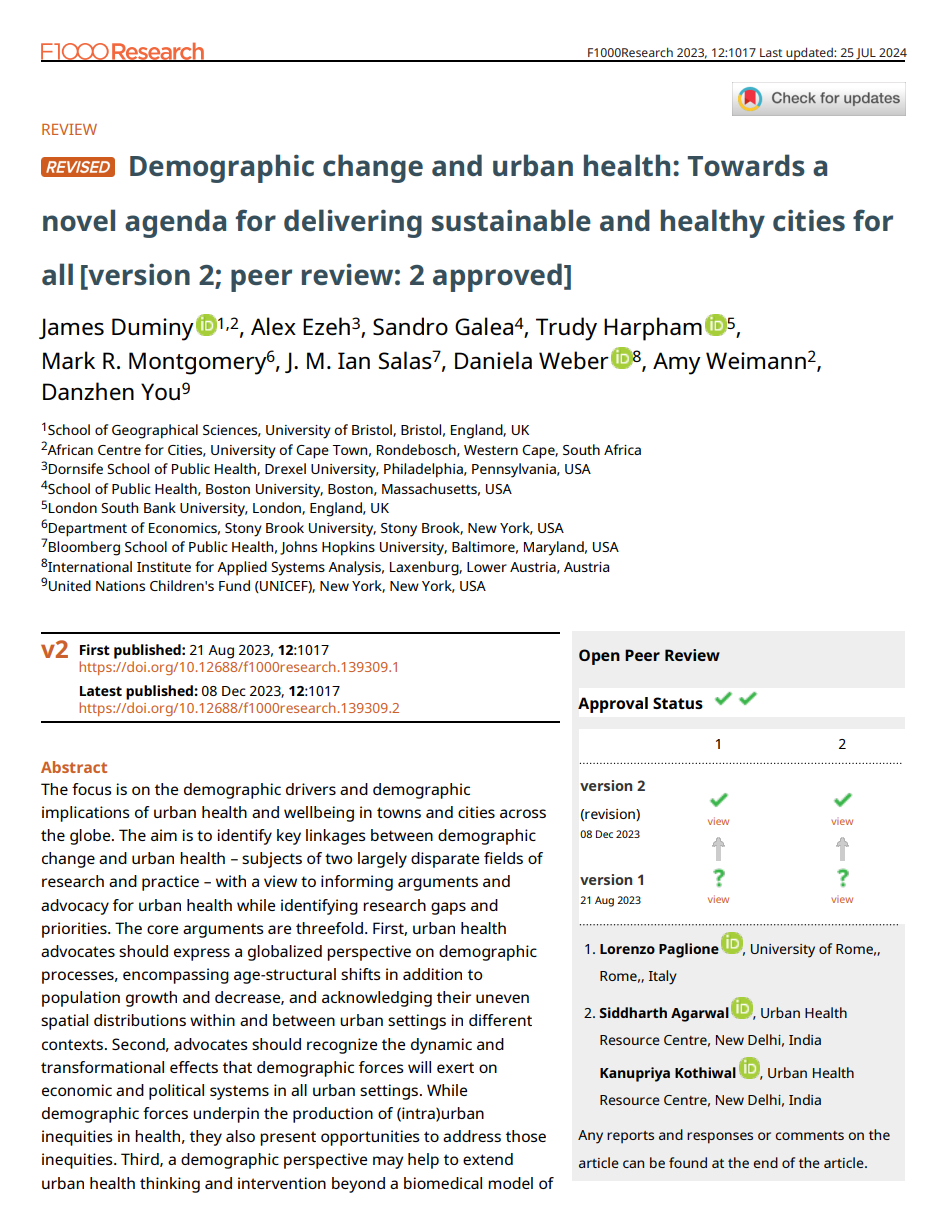Demographic change and urban health
Towards a novel agenda for delivering sustainable and healthy cities for all

The focus of this journal article is on the demographic drivers and demographic implications of urban health and wellbeing in towns and cities across the globe. The aim is to identify key linkages between demographic change and urban health – subjects of two largely disparate fields of research and practice – with a view to informing arguments and advocacy for urban health while identifying research gaps and priorities.
The core arguments are threefold:
- First, urban health advocates should express a globalised perspective on demographic processes, encompassing age-structural shifts in addition to population growth and decrease, and acknowledging their uneven spatial distributions within and between urban settings in different contexts.
- Second, advocates should recognise the dynamic and transformational effects that demographic forces will exert on economic and political systems in all urban settings. While demographic forces underpin the production of (intra)urban inequities in health, they also present opportunities to address those inequities.
- Third, a demographic perspective may help to extend urban health thinking and intervention beyond a biomedical model of disease, highlighting the need for a multi-generational view of the changing societal bases for urban health, and enjoining significant advances in how interested parties collect, manage, analyse, and use demographic data. Accordingly, opportunities are identified to increase the availability of granular and accurate data to enable evidence-informed action on the demographic/health nexus.
Abstract based directly on original source.


Comments